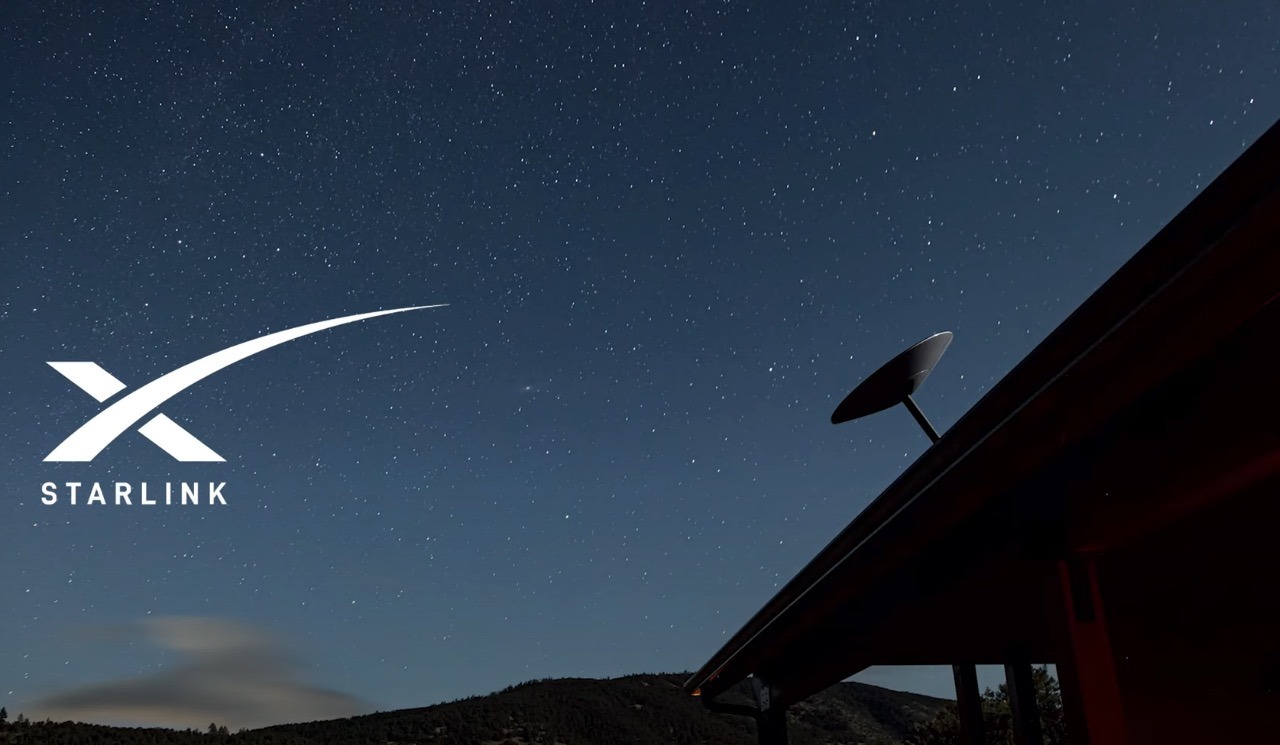
SpaceX Starlink Internet is ‘Crazy Good,’ Say Rural Canadians

SpaceX’s high-speed satellite broadband service, Starlink, received its license to start operating across Canada in October 2020 after an “unprecedented” 2,195 people wrote to the Canadian Radio-television and Telecommunications Commission (CRTC) and lobbied for it.
The service received rave reviews from Canadians a month into its launch. Now, well over a year since the service launched, Canadians, especially those living in rural or remote locations with few to none options for internet providers, are more than satisfied with it — reports The Star.
Andrew Ryeland, who lives on a lake in cottage country near Parry Sound, Ontario, petitioned Canada’s telecommunications regulator in favour of the service and ordered Starlink as soon as it launched. He even got six of his neighbours to do so with him.
For $129 a month, Starlink delivers a “perfect signal” backed by “fantastic customer service for subscribers,” he said, along with more bandwidth than he ever dreamed possible in his rural home.
“The satellite dish that they sent cost $699 plus tax. And it took me 10 minutes to install,” added Ryeland, noting how easy Starlink was to get up and running.
In Didsbury, Alberta, geologist Kyle Chester — who, like Ryeland, also petitioned the CRTC to license Starlink — had a similar story to tell, explaining how big of an improvement Starlink was compared to the previous internet connection at his rural home.
“So far it has been excellent. My download speeds have been five to 10 times faster, and the reliability and uptime have been another dramatic improvement,” he said in an email.
“The monthly cost is $130 and is a bit more than I’d like to pay for internet, but is a far greater value than the $75 I was paying before for substandard service.”
In 100 Mile House, B.C., graphic designer Dan Doucette, another Starlink petitioner, eloquently summed up his experience with the service in two words: “Crazy good.”
So does that make Starlink, an internet service powered by a constellation of satellites in low Earth orbit (LEO), a credible threat to traditional Canadian telcos providing fixed broadband connections across the country? Maybe (in some regions), maybe not.
According to Ookla Speedtest‘s median internet speeds report for the third quarter of 2021, Starlink is giving Canadian fixed broadband a run for its money, even outperforming it in some provinces.
Ookla observed median download speeds of 84.55 Mbps across Canada on Starlink during Q3 2021, trailing just behind average download speeds of 90.67 Mbps over fixed broadband.
Starlink actually had land-based fixed broadband beat, with faster speeds on average, in six of Canada’s ten provinces — Manitoba, New Brunswick, Nova Scotia, Prince Edward Island, Quebec, and Saskatchewan.
Given that Starlink is powered by satellites, however, the service suffered a significant loss in latency, with a median of 56 ms compared to just 12 ms for broadband.
During a satellite conference in Washington, D.C., in March 2020, SpaceX CEO Elon Musk said he doesn’t think Starlink threatens conventional internet providers — at least not in the U.S., where internet costs are lower than in Canada.
“I want to be clear, it’s not like Starlink is some huge threat to telcos,” Musk said. “I think it will be actually helpful and take a significant load off the traditional telcos.”
And while Starlink opens up a whole new realm of possibilities for people living in rural areas where internet service is usually subpar, egregiously expensive, or a mix of both, it’s not exactly affordable.
“It won’t solve the affordability problem,” said John Lawford, Executive Director and General Counsel of the Public Interest Advocacy Centre in Ottawa, noting that Starlink’s monthly costs lie beyond the means of many low-income Canadian households.
Canada’s average monthly price for a 41-100 Mbps internet connection in 2020 was $77, though, which is already higher than international standards.
Starlink is rapidly expanding coverage and SpaceX is constantly working on improving the network to better serve its growing customer base. Earlier this week, SpaceX launched Starlink in Spain, the Czech Republic, and Slovakia.

